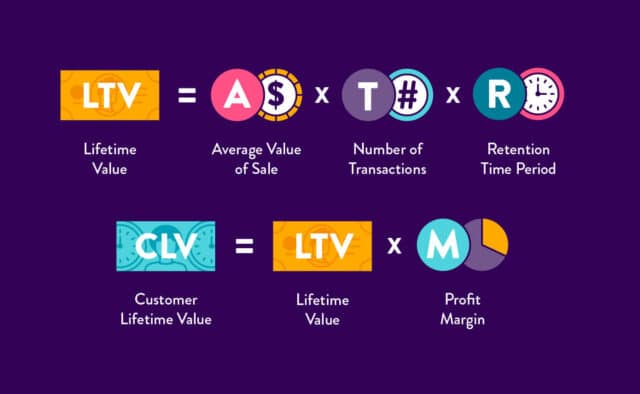
No one likes to waste money. Unfortunately, with PPC, pay-per-click advertising, it’s not always clear that you are wasting money.
First, let’s clarify what I mean by PPC. PPC or pay-per-click advertising is an all-encompassing term that covers the following, at a minimum…
- Google AdWords
- Bing AdWords
- Social Media Advertising (Facebook, Twitter, LinkedIn, etc.)
- Amazon Advertising
- YouTube Advertising
So, for this post, I am going to cover some general money-wasting PPC habits to avoid. These habits are:
- Not identifying a target audience for each campaign
- Being too broad with your keywords
- Not optimizing the path to conversion
- Neglecting your ad campaigns
Let’s take a deeper look at each of these money-wasting PPC habits.
Not Identifying a Target Audience
Some of you might think, “well, duh,” but it happens more than you might think. What is the point of advertising? To get a specific type of person to take a specific action.
The best way to motivate someone to take an action is to fully understand that person and their motivations. This is where I would normally go down either the UX or Buyer Persona rabbit hole.
Fortunately, I was able to interview the foremost expert on Buyer Personas, Adele Revella. I highly recommend checking that out. I also wrote a post on how UX affects SEO which would also be very useful for this discussion.
Go ahead and check out both, I’ll wait.
What Your Target Audience Wants
Even if you didn’t go check out those other posts (yet), this article will still help. You need to know your audience. You are paying for them to click a link. At a minimum, you should be able to answer these questions…
- Motivation: why would they buy from you?
- Situation: how do they want to buy from you?
- Dedication: what is their value over time or CLV (customer lifetime value)?
Buyer Motivation
The best way to understand someone’s motivation is to ask them. Before you go spend potentially thousands of dollars on PPC campaigns, take a little time to better understand who you are marketing to.
Call a handful of customers and ask them some specific questions. The answers to these questions will be gold for you…
- Why did you buy from us over our competition?
- What about the buying process did you enjoy / not enjoy?
You are looking to understand why they buy from you so you can craft better campaigns geared toward those motivations.
Buyer Situation
Continuing with your customer interview, you’ll want to understand the mechanics of their purchase. This will inform your decisions around the ad platform, device, and more.
- Where did they first hear about you?
- How did they search for you?
- What words did they use to search for you?
- Define the trigger moment that ended with a purchase.
- What device did they use?
Have them walk you through the specifics of how they came to find your product or service, paying special attention to where they looked and what search terms they used.
And what got them to make the purchase will help you to identify your ideal ad platform and optimize their path to conversion (more on this in a bit).
Buyer Dedication
This is where you can start building the goals you would like to track. The more you know about your customer, the more trackable and attainable your goals will be.
For example, is this customer someone who will purchase a product and that is the last you hear from them? Or are they likely to purchase repeatedly? This gets you into the LTV (lifetime value) or CLV (customer lifetime value) of that customer.
Here’s a great breakdown from CleverTap on how to calculate these values…

Calculating the customer’s value will help you to determine…
- Which customers are worth spending ad dollars on
- How much you should spend
We’ve seen way too many of our customers base their PPC efforts on arbitrary numbers. Not only is this wasteful, but it’s completely unnecessary.
Knowing your customers, how they purchase from you, and what their value is to your organization, will allow you to engage in an ad campaign that is based on math instead of philosophy.
Being Too Broad with Your Keywords
We’ve taken over campaigns for clients where there was clear and obvious waste. The usual suspect? Wrong keywords.
Going through the exercise above will help you to zero in on the words worth bidding on. You only want to bid on words that signal a purchase intent, in other words, the words they told you they use to find you and make a purchase.
If you have an unlimited budget, which no one really does, you can do things like bid on your company name or your competitor’s name. But, for the rest of us, your brand name should be part of your SEO strategy, not your PPC strategy.
For competitor names, again, this should be part of your SEO strategy and not your PPC campaign. Use PPC to target ideal customers with serious purchase intent.
Build a hyper-focused list of keywords tied to purchase intent. Start there, it’s enough.
Negative Keywords
Negative keywords are so often overlooked. Creating a list of words you do not want to appear for will help you to avoid wasteful spending.
These are terms that have the exact opposite intent of your target keywords or can change the meaning of a keyword. This negative keyword list tells Google what terms you do not want to appear for. Here’s a definition from Google…
“A type of keyword that prevents your ad from being triggered by a certain word or phrase. Your ads aren’t shown to anyone who is searching for that phrase. This is also known as a negative match. For example, when you add “free” as a negative keyword to your campaign or ad group, you tell Google Ads not to show your ad for any search containing the term “free.” On the Display Network, your ad is less likely to appear on a site when your negative keywords match the site’s content.”
As you can imagine, this could save you a ton of money by dialing in the focus of your campaign. Another example would be if you are a used car dealership and you want to bid on “Honda CRV.” A negative keyword you may want to list could be “parts.”
Read this post from Search Engine Watch for more on negative keywords.
Not Optimizing The Path to Conversion
This is another common mistake that companies make with their PPC efforts. For example, you spend $1,000 a month on Facebook ads. You are getting tons of clicks but minimal sales.
Assuming you’ve done your homework with your target audience, the usual suspect here is a big old bear trap along the path to conversion. Let me explain.

You’ve considered their journey before they see your ad, now you have to take them the rest of the way. So many ads will direct someone to the homepage of a website. This is a huge mistake.
A homepage is the least ideal place to send someone from an ad. It’s full of links, calls to action, and other shiny objects to distract the clicker from completing their mission.
Targeted Landing Page
What you want to do is send them to a targeted landing page. This post on landing pages should help. Long story short, the page they go to after clicking on the ad should…
- contain content relating to the ad copy
- be void of any distractions
- have a clear call to action
- use a simple form with minimal fields
Put nothing in the way of conversion. Your landing page should be an express lane to Purchaseville. Sorry, that was really lame. Oh well, too late.
What to Do After Conversion
Remember where we talked about customer lifetime value about 500 words ago? Well, that value doesn’t just happen, you have to cultivate it. This starts with the Thank You Page, the page that comes after conversion.
So many miss this golden opportunity, what to do after the sale/conversion. Here are some ways to keep the relationship alive and make the most of the conversion…
- Thank them for their purchase and outline the next steps.
- They like your stuff, give them offers on related products.
- Encourage them to signup for your newsletter for offers, deals, and announcements.
Your customers expect to be treated well and want you to engage with them. If you treat them as just another order number, your chances of subsequent purchases go way down. Remember, you are spending money to get them to this point, make the most of it!
This brings us to our last money-wasting mistake…
Neglecting Your Ad Campaign
Nothing in PPC is set it and forget it. Ad campaigns take constant monitoring. There are so many variables in PPC that you are never “done.”
Neglecting your PPC campaign can cost you tons of money. Why? Well, if you are not optimizing your campaigns, you could be spending money on keywords that do not convert.
You might get traffic, but you’re not getting sales. Very few businesses can afford to spend money on “brand awareness” alone. They need to cost-justify their efforts. This is especially true for PPC.
Monitoring and optimizing your campaign can include one or more of the following regular activities…
- Look at keywords against conversion, remove those that do not convert.
- Try new keyword variations if certain keywords are not converting. (make the Search Terms Report your friend)
- Tweak ad design or copy, try an A|B test.
- Tweak landing page design or copy, and A|B test.
- Review ad platform regularly, is it still the best option?
- Using an ad schedule.
Managing PPC campaigns is a complex process. We are light years beyond the days of “spray and pray” or the “shotgun approach” of marketing.
We now have the luxury of using data to hyper-target an audience. You simply could not do this back in the golden age of advertising.
But, technology is not always our friend, especially when it drains our wallet. Make sure you are running an optimized campaign…
- Target the right audience
- Bid on keywords that convert
- Optimize that conversion path all the way through
- Never leave a PPC campaign unchecked
If you do these four things, you will see greater campaign success for less money!
Do you need help optimizing your PPC campaign, drop us a line and we can take a look!